I’ve been reading Mitch Joel’s blog, Six Pixels of Separation, for years now and I’m still loving it. Mitch is a real writer’s writer if that makes any sense. And he’s been doing this blogging stuff for like 20 years now. He’s also from Canadia, but we won’t hold that against him.
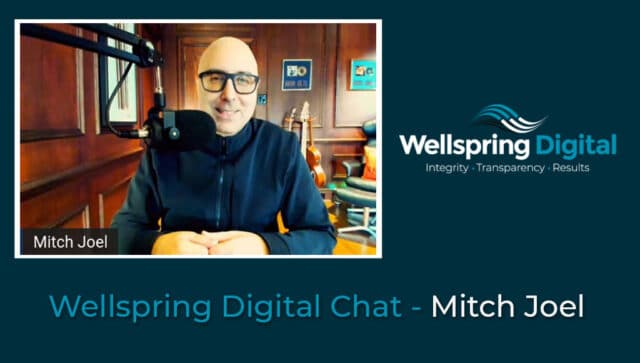
I’ve actually met Mitch in person once and saw him keynote at a Digital Summit a while back. Mitch knows his stuff! In this, we discuss…
- The state of content marketing and its future
- Are we moving towards more podcasts?
- How the pandemic has affected conferences
- The role of privacy in marketing
- The impact of new privacy measures on marketing automation
Let’s dive in!
Digital Transcription (Edited for Readability)
Introductions
Jon-Mikel Bailey: Hello, everybody, I am Jon-Mikel Bailey, and this is the Wellspring Digital Chat where we go out and find some of the best marketing brains in the business. We gently remove those brains from their heads, we extract all the good stuff, all the knowledge, we gently put the brains back in, they have no idea what happened. Everybody’s happy. And we’re all better off for it. So we’ve got that going for us.
So today I’ve been reading our guest Mitch’s blog, Six Pixels of Separation, for years now, and I’m still loving it. Mitch is a real writer’s writer, if that makes any sense. And he’s been doing this blogging stuff for like, I don’t know, 20 years. He’s also from Canadia. But we won’t hold that against him. Or agaynst him as they, as they say up there. Anyway, Mitch, please take a moment, ignore me and introduce yourself to these fine, folks.
Mitch Joel: Well, thanks, Jon, for inviting me happy to be here. My name is Mitch Joel, I run a little company called Six Pixels Group. I used to be in the digital marketing agency world and I sold that business and started blogging and podcasting a long time ago. Both of those are called Six Pixels of Separation. I wrote a book called Six Pixels of Separation and a book called CTRL ALT Delete. I spend most of my time now speaking to groups all over the world, creating media content, doing media things. And I’ve got a stealthy little startup that should be launching soon that I’m not going to talk about.
Jon-Mikel Bailey: We’ll keep you posted.
Mitch Joel: Yeah, yeah, there you go.
Jon-Mikel Bailey: There you go. So, I’ve done a written interview with you in the past years ago, and I believe we met briefly at a Digital Summit, I got the shirt on a series event a while back, but this is our first in-person extended conversation. I am really excited about it. So if you’re ready, I’m ready. Let’s jump in.
The State of Content Marketing And Its Future
Jon-Mikel Bailey: So as we mentioned, you are a prolific blogger and podcaster. And I love to ask this of all sorts of OG content marketers, what has changed since you started? What has stayed the same? And look in your crystal ball, what do you see coming next in the world of content marketing?
Mitch Joel: Yeah, I mean, those are big, big, meaty questions. What’s changed, I think the access has changed. It’s made it easier to connect and find these different formats. So when I first started, one of the things I would talk to brands about was this idea of being able to create anything in text, images, audio, video, live, pre-recorded, short-form long form.
And at the time, the platforms weren’t really sophisticated enough to deliver that. The pipe wasn’t good enough, even finding podcast was really challenging. And for some, it still remains that way. So I think accessibility has been a big component of it. And then I would also say that the distribution has changed, meaning it really was segmented towards a specific type of audience.
And I’m not saying that the digital divide doesn’t still exist. But we do live in a world now where a much younger demographic and a much older demographic have taken hold, in particular, during the pandemic, for sure, become more digitally first or digitally self-aware. And that creates bigger audiences and greater attention.
You know, what has changed? I really believe that the beginning that this was the new form of media, because where I came from traditional publishers, or traditional media companies really controlled access to an audience. And I really did feel that these niches people like me, who were creating an hour-long conversation with a thought leader, wasn’t the type of content you would readily access anywhere at the time.
Now it’s become, you know, it’s everywhere. Yeah, I didn’t necessarily think that it was going to become somewhat of a monopoly in terms of who owns those media properties, which is very similar to the Blueprint we had prior to that. So these you know, Scott Galloway calls them these unregulated monopolies. I just didn’t really believe that that would happen.
And here we are. And then I think there is something around how video and audio are really coming into their own in the past half-decade, I would say. When I look towards the future, you could see the natural progression into really viable virtual worlds augmented reality.
We can talk Facebook and meta if you like. But seeing that promise be delivered, that experiential content or digital content will there’ll be more three dimensional that will take place outside of just a screen, I think is the natural, inevitable, as Kevin Kelly would call it.
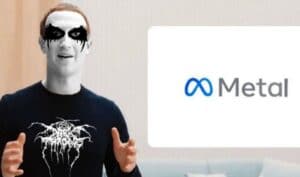
Jon-Mikel Bailey: Yeah, I’m looking forward to it, I was telling my wife the other day, I’m like, you know, I’m excited for virtual reality, I’ve tried it out. And it’s not, you know, it’s not quite there yet. But I’m ready to strap on the goggles and the earpiece and go walking through history or something cool like that, you know, or have some sort of like a real experiential conversation with somebody, maybe the future is this, but we’re sitting with VR goggles on, and you and I are just sitting in a room in the matrix, you know, having a chat.
Mitch Joel: Exactly the stop gap in between that is going to be this voice assistant technology. So if you have all of these mini internets that are connected, and devices and lights, and all of these things, and it is able to recognize you, and at the same time, understand your preferences or your personalization, that becomes the near smart thing, right?
Imagine walking into a hotel room, and you can dim the lights to 60%. It knows what channels you like, your playlists are able to be played. That personalization factor, I feel is closer to us right now than that virtual reality world, which again, makes sense, because we’re talking about just audio technology that already exists, versus a very complex platform that Zuckerberg and others are talking about building.
And you have to go back and imagine the moment when the web browser first came to be which I was there for, and seeing the sparseness of it, but at the same time being able to identify the crazy opportunity. That’s kind of where this whole Metaverse virtual reality world is, we’re just really far from it. But it’s going to happen really, really quick because…
Jon-Mikel Bailey: Like Back to the Future, but without Biff Tannen.
Mitch Joel: Maybe with a lot of big tenants, probably be a lot of Biffs. If you really think about how divisive we are in the social platforms, which would be the other key components. Jon, of what you asked earlier, did I think you would divide us this much? No, I thought it was the opposite. I thought that access to all these other voices and these diverse voices from other places, and other types of people would bring us together. And seeing it divide us is a real testament to who we really are as people innately. Unfortunately.
Jon-Mikel Bailey: You’re bumming me out, Mitch.

Mitch Joel: But let’s change the subject line.
Jon-Mikel Bailey: It’s the reality we’re in and maybe someday we can change that.
Are We Moving towards More Podcasts in Our Content Marketing?
Jon-Mikel Bailey: So, you know, we’re talking about the future, we’re talking about the now. Let’s talk about the now and the very sort of near future, which is the fact that I’ve noticed the bulk of your content seems to be in podcast form. And I’ve seen this trend happening in the past few years on many major popular marketing blogs. And so, what I wonder, though, is for the average marketing director, do you think they should move in this direction towards the sort of video and audio content? You know, yes or no. And why?
Mitch Joel: Well, it goes back to what I was saying earlier, I made a choice long ago that the two main types of content I’ll create are text and audio, primarily long-form. So if you really look at my podcast, if you really look at whatever writing I do, it’s not the bullet point, link-bait stuff it, it’s got more meat on the bone.
So I think that these marketing directors need to start there. What are we actually good at creating? So when you talk about what’s been that minor transition in your content, it’s been, I’ve been asked by a lot of radio stations and other media outlets to appear, you know, Weekly To Do hits. And those to me are really interesting, quick, snackable pieces of content that people can find out, you know, a take on something with an app of the week or whatever it might be.
At the same time, I’ve got my weekly podcast that comes out. And I do a weekly link exchange. And I look at the world now and go, Well, it used to be six or seven times a week, but even three times a week seems to be quite a bit for people in this day, in this day and age in terms of that format of content.
So I would look really inward and look at the team and look at myself and think what type of content can I not stop creating. So I don’t want to ever stop doing my podcast because every week I get a chance when multiple times a weekend just put it out once a week to speak to some of the smartest people in the world.
That has been the most enriching experience of my life from networking and connecting but just learning and taking notes when they speak and thinking about the things I would ask them if we could have a cup of coffee, which is essentially what we’re doing but just through these digital channels. Figure out what that is.
You might find people who were working at the college newspaper back in the day, and that’s what they want to do. They want to really create journalism, you might find people who spend a lot of time on TikTok and are really understanding of how to culturally create for that platform. You might have people who are filmmakers and YouTube or Vimeo becomes a really viable channel.
So the opportunity to think in text, images, audio, video, short form, long form pre recorded live short. All That, to me is a great jumping off point. Because then you’re not really thinking about what’s popular now. You’re thinking about what can I not stop doing? What is the type of content I will just always do, no matter what happens? And that’s been the secret.
It hasn’t been a thought about pressure. You know, just think of how do I persevere? Or how do I really push this forward? It hasn’t been it’s been like, I wake up every day. And I’m like, Who can I speak to? That’s really interesting. And then we’ll just hit the record button over there.
Jon-Mikel Bailey: So playing to your strengths?
Mitch Joel: Yeah, or your passions or the things you don’t really care if you’re paid to do but might add value to your business and might help you build your brand or tell better stories. I think that’s a great place to start.
Jon-Mikel Bailey: You’re exposing my not so secret secret in the fact that this is where I gain the bulk of my knowledge just from podcasting.
Mitch Joel: And listen, Jon, the truth is, I learned as much from hearing you ask questions in the conversation than I do from speaking which means some of the audience is getting something I do them because I learn as well.
Jon-Mikel Bailey: Amen. That’s fun. That’s fun. It’s fun, for sure. Who doesn’t like having thoughtful conversations?
Mitch Joel: Some people don’t.
Jon-Mikel Bailey: Those people are weird. Anything to do with them. But anyway.
How the Pandemic Has Affected Conferences
Jon-Mikel Bailey: So, you know, obviously, we’ve gone through some craziness, the pandemic has had an incredible impact on the marketing world specifically in terms of conferences like the Digital Summit, moving to digital-only during lockdown. So do you see this trend towards digital continuing past the pandemic? Or you know, as a road warrior yourself, as a keynote speaker, someone who’s done tons of these things, is there still value for in-person conferences? And I have a wish as to how I hope you answer this question.
Mitch Joel: Look, the march towards having digital assets didn’t happen because of a pandemic. I mean, binge-watching on Netflix, YouTube viewership, TikTok, Instagram, all of this was happening long before the pandemic watching people interested in consuming content or videos. Think about things like Masterclass or LinkedIn Learning or the growth of Cameo. And you can frame it.
But I don’t think I would confuse the fact that I like watching a concert on YouTube to physically going to a concert, right? The two different experiences of listening to an album in the studio versus seeing a band live are two very different experiences. And they live in a very, very beautifully coexisted way.
So when I think about live events, and I’ve been back on the road for a little bit, you know, my main awakening is, for the speaker, yeah, just travel 10 hours back and forth for 45 minutes. That seems absurd in a world where I can turn on the lights and the mic and be hot and go. But what you really see is that the transfer of information is 10% of the experience.
Think about it in terms of college, think about it in terms of a physical conference that you go to, when I go to those events. I don’t just go to speak on stage, I go to meet my peers to connect to learn to create connections. And what I’ve seen in the past couple of months as the world reopens up to physical events is that is the big part.
I’m not the big part, I can be done by zoom, the content exchange can be done in a different or more simplistic way. But the hour before that, where we’re having breakfast together. And the hours after that, where we’re playing golf or doing an experience on the beach, or just hanging out in the hotel bar, or making alternative plans to do other things, is where the real growth happens.
So I don’t think we can diminish that. I mean, a lot of kids got into College and wanted to take a gap year because it was going to be online. And my general thought was you should because I think the transfer of information from the teacher to you is a very small component of building your network living with your peers being away from home, experiencing a new culture being there.
We have so many issues with how we see others, especially people who have been pushed down in the world. When you go out into the world that is where you see them. Pico Iyer said something like we don’t travel to move we traveled to be moved or something like that. Right, probably butchering a brilliant quote. But it’s true and we forget that it is all the in between things that create the experience, not just the transferring of information from one body to another.
Jon-Mikel Bailey: Yeah, next month I’m going and speaking at my first conference in over two years, and I just overjoyed, you know, super excited for it. And for all the reasons you just mentioned. I think that, you know, for one thing for me, what I get out of it is, is, you know, after I speak, I get a chance to then have thoughtful, meaningful discussions with people who are doing marketing on a regular basis and hear their problems and hear their questions and, and really get some feedback on whether or not my information was helpful.
If they want to challenge me, that’s great. And then we can have a more in-depth discussion, and I learn, you know, just as much as I teach when I go to those things, so I’m very much looking forward to it.
Mitch Joel: Yeah, I mean, it depends on how you go at it. You know, these first few for me, were a bit sketchy here. You know, I was, you know, I’m from Canada. I’ve got some unvaccinated kids here. I really was hiding out in my room and trying to avoid a situation where I’m doing some cross-border, international transference of whatever, right?
But I could see by the attendees, that the desire to be connected to beings or protein forms, as I like to say, is really profound that I felt that they were growing by being together. We need each other. We’re social creatures. We knew that before this pandemic. Yeah.
The Role of Privacy in Marketing
Jon-Mikel Bailey: So, you know, speaking of needing each other and being organic. Let’s move into the cyborg. Elon Musk wants to put a chip in our brains and Mark Zuckerberg…
Mitch Joel: Burrow holes under our cities.
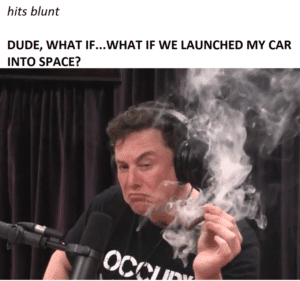
Jon-Mikel Bailey: He wants to burrow, burrow holes everywhere. Yeah, Mark Zuckerberg wants us to dive into his Metaverse, which scares the crap out of me. But anyway, with all this immersive digital opportunity, AI, machine learning, and the like, privacy continues to be the main concern for people out there, rightfully so. What role do you see privacy playing in our future as marketers?
Mitch Joel: Even my thoughts on privacy have expanded into my rights of my data and information, and they’ve expanded into a more general thought around digital media literacy. And it really crystallized during the early days of the pandemic, when we saw if you were fortunate enough to have your young people go online for school, watching the level, or lack of knowledge that these institutions had with even Google Classroom. It was flabbergasting to me.
It was illuminating to realize that the people that we’re hoping are going to teach our young kids about digital media hardly know how to use it, or what it’s for. And again, people end up great, don’t get me wrong, but as someone who lives and breathes this stuff, I can see that there was a lot of fumbling through what this means, which blew back on me as a parent to realize that there’s a lot of work that needs to be done.
And so as we sit here, think about privacy, and our rights and freedom of speech, and what this all means, the only analogy I can think of is people are throwing Molotov cocktails into stores, and then really upset that the stores are on fire and blowing up.
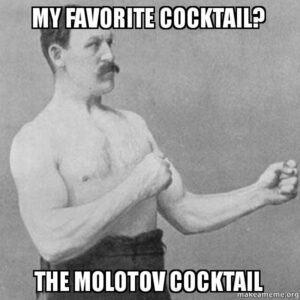
Now, I’m not saying we shouldn’t blame the platform. And I’m not saying we don’t need to be really careful about these very powerful, unregulated monopolies that have not been highly regulated or regulated at all. We should. But we have to decide, what do we want to create? What do we want to distribute? What do we want to share?
And what level of comfort will we have in the social contract of understanding that more often than not, our data is the product, which is essentially who we are. So the challenge goes beyond privacy, and to end encryption on messaging apps.
We all want this, I want that. But if we have to break that to stop some adults from having child porn out there, I say put end-to-end encryption. Right? It’s this weird exchange that we have to really think about in a different way.
Jon-Mikel Bailey: But I mean, you think about cars. And you know, we’re not all out there on the highway, you know, playing live bumper cars. We’re driving responsibly, according to the rules of the road. But I agree, now that you put it that way, social media is this sort of like, I don’t know, Gladiator-esque sort of fighting pit where where the ugliness of man is just put on display on the regular it’s really depressing.
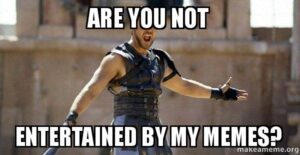
Mitch Joel: Yeah, it’s depressing, but it’s understandable. We feel protected behind this screen. This you don’t see. I can say whatever I want, I can be flippant. We also have yet to acknowledge how communication works, which again, is a media literacy function. When I send you an email, I am writing it how I feel in the moment. When you receive that email, you are reading it how you feel in that moment.
I need to be thinking before I send that email, how might Jon be feeling in this moment if he’s feeling really frustrated or very angry? You understand my sarcasm and my dark humor, right? This is where the misunderstandings happen. Also, we feel comfortable in this way of almost pushing this bravado out.
And I often said that if social media were live and we were all standing at a cocktail or in a bar, you probably wouldn’t say 99.9% of the things that we feel very comfortable suddenly sharing. And so if we did, it would be a fist fight. Yeah, wouldn’t end well, for most people, that’s fake.
Jon-Mikel Bailey: If you’re typing on social media posts like this, you know, you might want to take a breath.
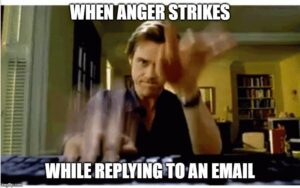
Mitch Joel: I was really involved in martial arts for a large part of my life. And there was this infamous story about Bruce Lee, who would write these letters and then light them on fire and never send them. And I feel like that’s probably 99.9% of what you can do on social media. You see a post, it’s really making you mad, open up a text file, write your whole response, don’t publish it, don’t post, just save it in your text file. Go back in a day or two, let me know if you still want to really push that out there. See that?
Jon-Mikel Bailey: That’s an idea for a new feature for all, you know, Instagram and Facebook and whatnot. And Twitter is a little warning, you know, like, “Are you sure you don’t want to take five seconds and really think about this?”
Mitch Joel: Twitter saying, “I’ve done you a favor, and I’ve sent this tweet to draft, we’re gonna hang out for a bit, we’re gonna put in a bit of a sandbox. Let’s think about this.”
Jon-Mikel Bailey: Yeah, “I can tell you’re gonna regret this. So I’m here for you.
Mitch Joel: My AI is smart enough to know that this is going to be a regretful tweet.
Jon-Mikel Bailey: Exactly.
The Impact of New Privacy Measures on Marketing Automation
Jon-Mikel Bailey: So, let’s continue with privacy. You’ve spoken at HubSpot’s Inbound Conference, we love HubSpot. We love Marketo. We love inbound marketing and marketing automation is great. But I would argue that privacy, specifically with what Apple is doing with their latest iOS, may forever change marketing automation into something altogether different. So first of all, do you agree and, what do you see as the future of marketing automation with the privacy changes that are happening now. And I think coming?
Mitch Joel: You know, I got to preface this by saying that I sold my agency eight years ago, and I haven’t been there in three years. And the traditional trajectory of an agency owner, once they leave is to become the biggest consumer advocate in the world. Nature of what it is. I think I’m someone who has always had values. And if you read the blog, going back, even when I had an agency, there was a lot of morals.
And a lot of values that I think would come post agency ownership. I look at the world of data and privacy that we were just talking about as it leaks into this thought. And all I want to know is how many data points do you need to sell your product and service? What are you hoovering up here? Do I need more than eight things about anybody to sell them something really.
And yet you’re hoovering up every action, every move, and then laying in machine learning and all this other data and data complex and big data sets to figure out how, to manipulate the sending, I think you’re working too hard. I don’t think you’re really thinking about what needs to happen to do this.
And while you may be able to do this in an easy and cost-effective way, which is essentially an engine of spam, even though you have my permission, you’re just looking through data to create one thing that might trigger a point little or one or 2% conversion, which to you might be huge business, I get it.
I just think there’s something that we need to stop and think about as marketers ethically, morally, and then just really from a pure product and service design mechanism. What is going on with your products and services? If it takes more than five things to know about a customer to sell them something? I mean, that’s the real question here.
If we could answer that ethically, and honestly, none of this would matter. Cookies and dropping and tracking and this what are you tracking me for? I’m looking for a briefcase, like what is going on here? It’s ridiculous. I’ve always felt that way. And I’ve always thought it was insane. I always thought it was hurtful.
And I always thought that the engine of how it does it is not very intelligent at all. How many times has someone said to me, you know, I love your briefcase, can I get it? And I just go to grab the link. And next thing I know I’m being retargeted for months for that same briefcase, right? I already own it.
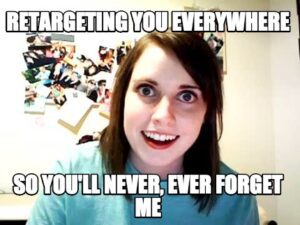
I mean, you would never know that there’s no AI in the world unless it’s tied into my Amazon account or some other brand that would be able to figure this out. So what you’re really doing is wasteful impressions, spending a lot of money on this retargeting because it’s a higher cost too, and it’s not even efficient or effective.
But again, if it delivers that 1% more, well then we’re doing great. I just think we’re looking at it the wrong way, 100%. And by the way, this isn’t post Mitch consumer advocate speaking I’ve been yelling this since day one.
Jon-Mikel Bailey: You have, I can attest to that. So if I can paraphrase it almost sounds like what you’re saying is these changes in privacy are actually forcing marketers to do better marketing.
Mitch Joel: What I’m actually saying is, if you have a product that requires more than five or six data points, review your product. What I’m actually saying is if you become the brand that is only going to take this and this from the customer, and you’re telling the customer this, you might build a level of brand loyalty and respect that in this world would be a moat, essentially a moat that nobody would. We’re not collecting any data on our customers. I mean, how many people would want to be a part of a brand that’s not going to haunt them everywhere they go.
Jon-Mikel Bailey: Right. Right, man? Well, that seems like a good place to end it. And I have to say, that answer is probably the best answer I’ve gotten to this question so far, both on the podcast and just talking to marketers in general. Because I really feel like you know, we have a saying here at Wellspring Digital, don’t trust the tools. And, you know, use your brain, market to people as people, and don’t hammer them to death with technology. And that’s sage advice.
Mitch Joel: Look, it’s the great promise. If you go back to almost day one of the stuff I was writing in the early 2000s, what did I say it’s about real interactions between real human beings? And we’ve finally been able to digitize that at scale.
So if every business that’s watching this thinks about every customer as a real human being, and we are real human beings trying to engage with them, how much of the usual BS of marketing will we put to the side? How much true storytelling will we build? And how much more respect would we have for them in terms of what we want to actually connect with?
That’s where the real opportunity is. And again, that hasn’t changed in 20 years. So here we are.
Jon-Mikel Bailey: Amen, brother. Well, Mitch, this went way too fast. But there is a ton of great stuff in here. And I really appreciate your time. I know you’re up there in the cold north, so please stay warm. Please stay safe. And thank you so much for being here. I really appreciate it.
Mitch Joel: Appreciate all the work that you do, Jon, thanks for inviting me, and happy to do this anytime. Thank you.
Jon-Mikel Bailey: Thanks.